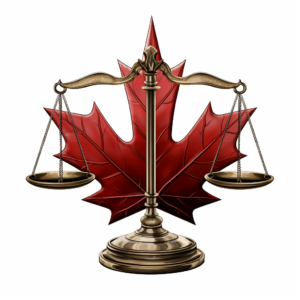Disability Law in Mississauga, Ontario

A Comprehensive Overview of Disability Law in Ontario: Empowering Accessibility and Inclusion
A society is best defined by how its most vulnerable members are treated. Ontario, one of the most populous provinces in Canada, is renowned for its strong laws protecting and defending the rights of people with disabilities. Disability Law in Ontario is vital to nurturing a society that values inclusion, equal opportunity, and respect for all its citizens. This article provides a comprehensive summary of the essential aspects of this legal field.
The Legal Landscape of Disability Law in Ontario
The disability law in Ontario stems from two main legislative documents: the Ontario Human Rights Code (OHRC) and the Accessibility for Ontarians with Disabilities Act (AODA). These laws aim to eradicate discrimination, ensure equal opportunity, and enhance accessibility.
The OHRC prohibits discrimination and harassment in various social areas, including employment, housing, services, contracts, and vocational associations. It covers people with both visible and invisible disabilities, including physical, mental health, developmental, and learning disabilities.
On the other hand, the AODA sets rigorous standards to make Ontario fully accessible by 2025. These standards are set across five areas: customer service, information and communication, transportation, employment, and design of public spaces.
Rights and Protections Afforded Under Disability Law
In Ontario, individuals with disabilities have the right to live with dignity, independence, integration, and equal opportunity. The law on disabilities outlines their privileges, which include:
- Right to Accommodation:
Individuals have the right to impartial treatment and opportunities under the OHRC. Employers, service providers, and landlords must accommodate individuals with disabilities to the point of ‘undue hardship’, taking into account factors such as cost, outside funding sources, and health and safety regulations. - Right to Barrier-Free Access:
The AODA requires organizations to make public areas, customer service operations, and workplaces accessible. It requires businesses to identify, eliminate, and prevent barriers for individuals with disabilities.
Enforcement and Implementation of Disability Law
The Human Rights Tribunal of Ontario is predominantly responsible for handling discrimination and harassment claims under the Ontario Human Rights Commission. The AODA is enforced by the Ontario government through audits, inspections, and penalties.
Additionally, the law permits individuals to disclose violations. It encourages both individuals and organizations to be conscious of their responsibilities and to take proactive measures to uphold these rights.
Despite the fact that the statutory structure is sound, issues remain. Many businesses and organizations are still failing to achieve the AODA criteria, and individuals are still subjected to discrimination. The entire achievement of a barrier-free Ontario is dependent on raising awareness, strengthening enforcement measures, and encouraging an inclusive society.
Disability Law in Mississauga, Ontario, exemplifies the determination to construct a more inclusive and accessible society. While there is still work to be done, the province’s commitment to implementing these rules lays the path for a future in which people with disabilities can fully and equally engage in all parts of community life. As we continue along the path of accessibility, keep in mind that inclusion is about more than just physical spaces; it is also about attitudes, acceptance, and respecting diversity.
A Deep Dive Into the Spectrum of Disabilities in Mississauga: Understanding Differences and Embracing Diversity

Located on the shores of Lake Ontario, Mississauga is a vibrant city that cherishes diversity and inclusivity. An integral aspect of its community is the population of individuals living with disabilities. This article aims to shed light on the types of disabilities in Mississauga to foster a greater understanding of our diverse community and pave the way for more inclusive practices.
Types of disabilities
Physical Disabilities
Physical disabilities encompass a wide spectrum of conditions that impair mobility or dexterity. They might be congenital (present at birth) or acquired later in life as a result of an injury or sickness. Multiple sclerosis, cerebral palsy, and other illnesses that necessitate the use of mobility aids such as wheelchairs or walkers are examples.
Sensory Impairments
Sensory impairments impact one or more senses, such as sight, hearing, taste, touch, smell, and spatial awareness. Residents in Mississauga with blindness or visual impairment, deafness or hearing impairment, and others with conditions such as sensory processing disorder are examples.
Disabilities of the Mind and Development
People with intellectual and developmental disabilities (IDDs) may struggle with cognitive functioning and adaptive behavior. Individuals with Down syndrome, autism, and Fetal Alcohol Spectrum Disorders are included. Support and understanding from the community increase the quality of life for persons with IDDs greatly.
Disabilities with Mental Health
Long-term mental health difficulties that interfere with daily tasks are classified as mental health disability. Depression, anxiety disorders, schizophrenia, bipolar disorders, and post-traumatic stress disorder (PTSD) are all common forms. To establish supportive environments, greater public understanding and destigmatization of these diseases are required.
Disabilities that are not visible
Finally, invisible disabilities are included on the disability spectrum. These disabilities are not often obvious to others, but they can have a substantial impact on a person’s everyday life. Diabetes, lupus, epilepsy, and specific stages of diseases such as cancer and multiple sclerosis are examples.
Legal safeguards are in place
Mississauga is dedicated to preserving and defending the rights of individuals with disabilities. The Ontario Human Rights Code outlaws disability discrimination in a variety of settings, including employment, housing, and services. In addition, the Accessibility for Ontarians with Disabilities Act of 2005 aims to make Ontario fully accessible by 2025.
Navigating Disability Rights: The Vital Role of Disability Lawyers in Advocacy and Support
Many people in Mississauga and surrounding areas live with disabilities ranging from physical and sensory impairments to intellectual, mental health, and invisible disabilities. While the Ontario Human Rights Code and the Accessibility for Ontarians with Disabilities Act provide legal protections, deciphering the complexities of the law can be difficult. This is when disability attorneys come into play. Disability lawyers provide vital assistance to people with disabilities, assisting them in navigating legal challenges and asserting their rights.
Understanding the Difference Between Long-Term and Short-Term Disability
Before getting into the role of disability attorneys, it’s crucial to understand the two main categories of impairment that are commonly discussed in court: long-term disability (LTD) and short-term disability (STD).
A short-term disability (STD) is a condition that stops someone from completing their regular job activities for an extended amount of time. The time period varies, but it usually ranges from a few weeks to a few months. During this time, STD benefits typically cover a portion of the individual’s regular salary.
Long-term disability (LTD) is a condition that stops someone from completing their regular employment activities for an extended length of time, typically months or even years. LTD might be caused by a severe physical injury, a crippling sickness, or a serious mental health problem. LTD benefits, like STD benefits, seek to replace a portion of the individual’s income during this time period.
Disability Lawyers’ Critical Role
Disability lawyers serve an important role in navigating the legal landscape for people with disabilities, both LTD and STD. Here’s how they can assist:
Legal Advice: Disability law can be complicated, making it difficult for individuals to completely understand their rights. Disability lawyers offer skilled counsel, assisting clients in understanding the complexities of relevant legislation.
Assistance with Claims: Applying for disability benefits can be a difficult procedure. Disability lawyers help with the application process, ensuring that all required paperwork is done accurately in order to increase the chances of a successful claim.
Appeals and Litigation: If a disability claim is refused, a disability lawyer can help you file an appeal. When litigation is required, they represent their clients in court, arguing for their rights and demanding just recompense.
Policy Advocacy: In addition to individual lawsuits, disability attorneys frequently engage in larger policy advocacy, urging legislative and regulatory changes to better safeguard the rights of individuals with disabilities.
Choose Your Trusted Advocate: Your Disability Lawyer in Mississauga

Navigating the intricate terrain of disability law can be an arduous journey, but you don’t have to tread this path alone. Whether you’re facing a short-term or long-term disability, secure the support of your disability lawyer in Mississauga. With their deep understanding of the complexities of disability law and a commitment to championing your rights, they offer a beacon of hope in challenging times. Guiding you through the application process for disability benefits, representing your interests in appeals or litigation, and advocating for policy changes, they are more than just legal counsel – they are your partners in your fight for justice and equality. Choose your disability lawyer in Mississauga to ensure you have the expert guidance, dedicated support, and steadfast advocacy you deserve on your journey toward securing your rights.

